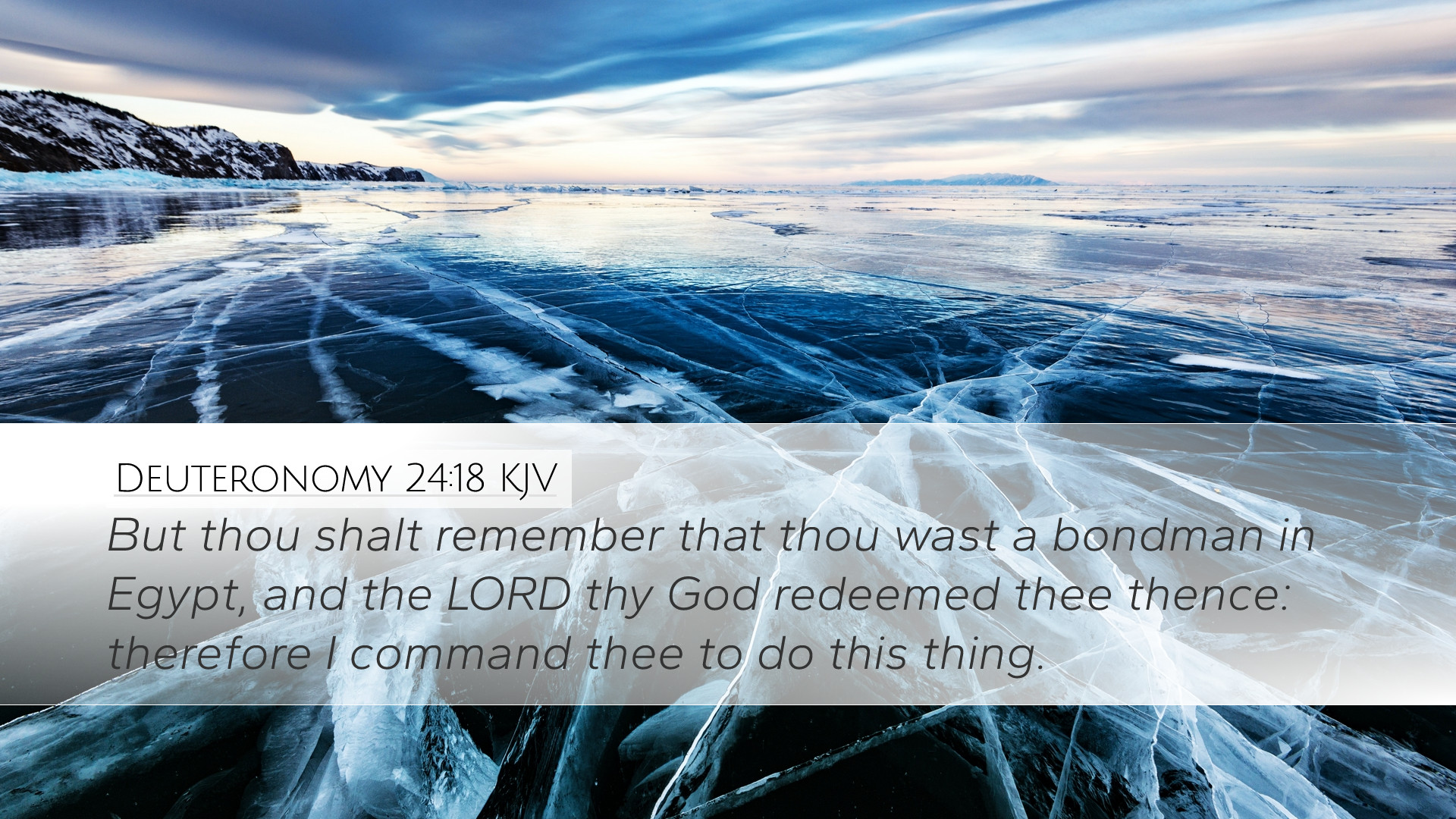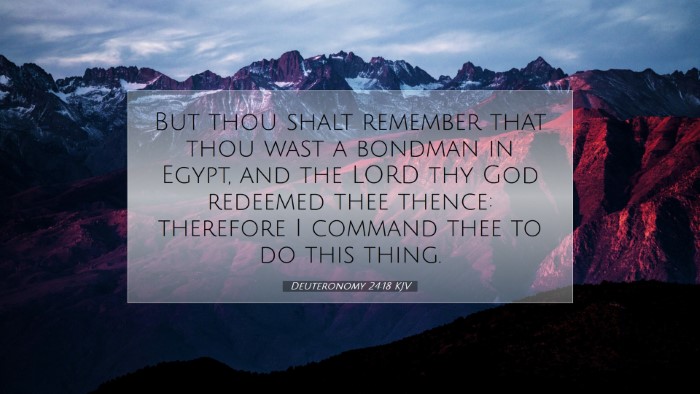Commentary on Deuteronomy 24:18
Deuteronomy 24:18 states:
"But thou shalt remember that thou wast a bondman in Egypt, and the LORD thy God redeemed thee thence: therefore I command thee to do this thing."
Introduction
This verse captures the heart of God's law regarding compassion and justice for the vulnerable members of society. In the context of Deuteronomy, it is part of a larger discourse on social ethics and the treatment of others, particularly those in positions of need.
Thematic Analysis
The key theme of Deuteronomy 24:18 revolves around remembrance and redemption. The verse serves as a theological and moral foundation for Israel's interactions with the downtrodden, derived from their own historical experiences.
1. The Call to Remember
Matthew Henry emphasizes the importance of remembrance in this verse. He notes that God's command to remember one's history as a bondman in Egypt acts as a catalyst for mercy towards those who are oppressed or marginalized. By recalling their own past, the Israelites are prompted to act with empathy.
This idea is central to the ethical framework presented in the scriptures. Albert Barnes elaborates that remembrance is not merely cognitive but is a call to action—challenging Israel to treat others with the same grace that they received from God.
2. The Nature of Redemption
Central to the text is the theme of redemption, which serves as an underpinning for the ethical mandates given by God. Adam Clarke notes that the concept of redemption in this verse implies divine intervention and compassion. God's action in redeeming Israel from bondage calls for a reciprocal response from the people.
This principle highlights a practical theology: God's salvific acts in history inform and inform ethical considerations, compelling the believer to act justly.
3. The Ethical Implications
The instruction that "therefore I command thee to do this thing" is an expression of divine authority. It serves as an edict compelling the Israelites to exhibit similar compassion as they have experienced through God's redemption. Matthew Henry asserts that the active pursuit of kindness and justice is a hallmark of a redeemed community.
Albert Barnes notes that this command is a direct response to the historical context of Israel's slavery; it indicates that understanding one's past trials can shape present moral obligations.
4. Application to Society
As this verse is examined in light of modern contexts, the directive to remember and act justly resonates profoundly. The historical backdrop of oppression allows for a deepened understanding of societal issues today. Adam Clarke urges contemporaries to remember their social context and respond with justice and mercy.
The principles enshrined in this verse are effectively timeless. They challenge pastors, theologians, and students alike to engage actively with societal injustices and seek restoration for those in need.
Conclusion
Deuteronomy 24:18 encapsulates essential theological motifs that are imperative for understanding the nature of community and individual responsibility. The connection between remembrance and redemption fosters a compassionate ethic for the faithful. The legacy of their bondage in Egypt becomes a springboard for justice and mercy in their contemporary lives—an ethos that remains applicable in today's world.
Key Takeaways
- Remembrance: A vital aspect of ethical behavior.
- Redemption: God's act of grace informs human action.
- Ethical Action: A direct command from God to promote justice.
- Contemporary Application: The ongoing relevance of compassion and justice in modern society.


